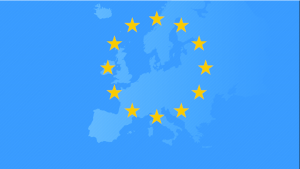Democracy is a costly gift, one that must be constantly developed

Christine Bosse
 How can any of us decide on anything if we are not sure about the facts? This is where educationAccountability within the public education system is key to improving outcomes and attainment, and accountability is nearly impossible without transparent policies and opportunities for participation ... and an independent media become crucial.
How can any of us decide on anything if we are not sure about the facts? This is where educationAccountability within the public education system is key to improving outcomes and attainment, and accountability is nearly impossible without transparent policies and opportunities for participation ... and an independent media become crucial.
Only through bloodshed and numerous conflicts have we come to a point where we, within the European Union (EU), can live in peaceful democracies in which we are allowed, even encouraged, to speak freely. This point is in fact laid out in Article Two of the Lisbon Treaty*.
Never before have people enjoyed as much freedom. On average, Europe is also as rich as it has ever been. What is new and what remains to be fixed?
First and foremost, social media constantly bombards us with news and opinions, whilst providing us with a sense of proximity to our decision makers. At the same time, however, it feels as if the same decision makers do not care about the challenges people face. The problem lies in the fact that everything moves very quickly and that politicians cannot provide us with a sense of security nor the knowledge to solve our problems. Worse yet, there is less time for debate or the involvement of citizens in troubleshooting our democracies.
The ‘slow cooking’ model of democratic processes, as we have known it, simply no longer meets the current needs and expectations of citizens with their problems and worries. What can be done to remedy this?
To begin with, we need to identify the different layer(s) of democracy within which these problems lie and reorganise some of our democratic processes. To successfully face the global challenges facing us, be them climate change, terrorism, migration, and other issues of similar magnitude, our decision-making processes must move beyond consensus to majority on the EU level. The same applies for all institutional bodies involved.
This does not mean that citizens will be left out of the decision-making process. On the contrary, we must ensure that there are channels available to citizens to become well-informed and get as involved in decision-making as possible. This can happen through openness and transparencyAccording to OGP’s Articles of Governance, transparency occurs when “government-held information (including on activities and decisions) is open, comprehensive, timely, freely available to the pub... More in the debates leading up to major decisions and in the voting process itself. The Council of Ministers, for example, would be a good place to start. Fearing that this could lead to populism only results in more fake news and blame games, and further disillusionment about the value of democracy.
For good reasons, or maybe due to convention, the implementation processes of EU rules are very different in each member state. It would be interesting to see if any of the implementation models result in more or less citizen engagement, and, as a consequence, if changes can be made to incorporate learnings.
The traditional democratic model only makes sense if politicians remain involved, take the occasionally demanding democratic processes seriously, and if the motivation of far-right politicians to question these processes is scarce. It is sometimes convenient to blame others, with Brexit being the most serious and devastating example.
The demand, therefore, has to come from us: the people. We should be curious to know how our democracy works. We should also be curious enough to corroborate stories and make sure that we are not fooled by fake news – which is amongst the most serious threats –, not letting us decide our own destiny. How can any of us decide on anything if we are not sure about the facts? This is where education and an independent media become crucial. Not only should we educate our children, but also ourselves as adults. We can take advantage of new technologies to facilitate life-long learning, and perhaps even make a “democracy driver’s license” a mandatory feature for participating in democratic processes, all the while not leaving people with special needs behind.
Some of these ideas might seem bold. But let us not forget that we live in times where bold attempts to disrupt the people-driven democracy that we have developed are both numerous and well-funded. We need to be aware, alert, and on the offensive to protect our freedom and our democracies.
* The Treaty of Lisbon, Article 2: “The Union is founded on the values of respect for human dignity, freedom, democracy, equality, the rule of law and respect for human rightsAn essential part of open government includes protecting the sacred freedoms and rights of all citizens, including the most vulnerable groups, and holding those who violate human rights accountable. T..., including the rights of persons belonging to minorities. These values are common to the Member States in a society in which pluralism, non-discrimination, tolerance, justiceTo address barriers that prevent citizens from having their justice needs met, OGP participating governments are working to expand transparency, accountability, and inclusion into all systems of justi..., solidarity and equality between women and men prevail.”
No comments yet
Related Content

Do We Trust Democracy? A Future Agenda for Europe
The European election of 2019 asked voters to choose between more or less Europe, between inclusion and diversity or exclusion and nationalism, and between societies that are more open or…

Leave a Reply